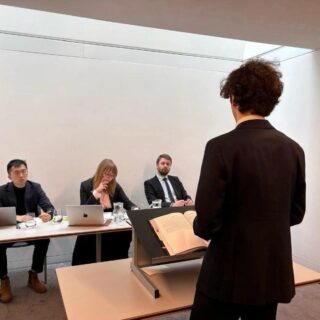Oliver Patterson tells us all about the City team’s experience of the Philip C. Jessup International Moot Court Competition; from writing memorials to the UK oral rounds at Lincoln’s Inn…
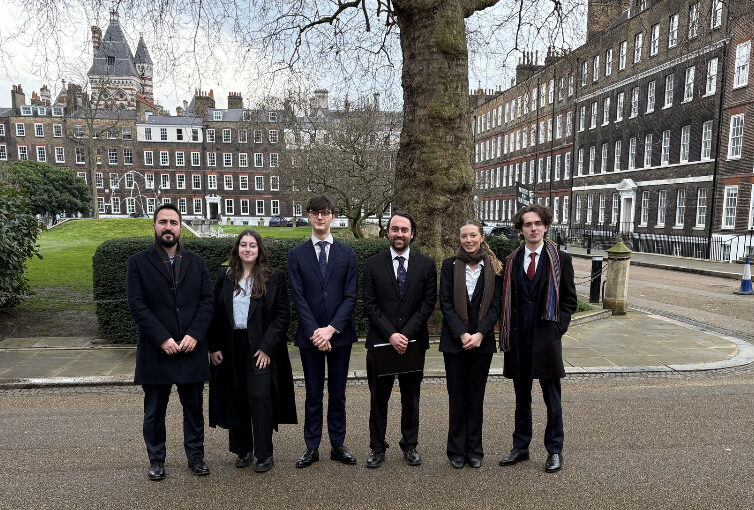
When I started studying the Graduate Diploma in Law in September, I really did not think that, come January, I would be debating the complexities of the law of the sea and the obligations of states in respect of climate change before public international law experts.
The first few months of the GDL is a time where everyone is scrambling to find extra-curricular activities to put on their applications. As someone that was interested in both developing my ability to advocate and improving my understanding of public international law, the Philip C. Jessup International Moot Court Competition stood out as a unique opportunity in which I could do both.
I was of course pleased to see I had been selected to represent City; however, that feeling of delight subsided quickly after I opened the moot problem for the first time. The two fictional states in the problem, Ambrosia and Rovinia, were entangled in a variety of complicated conflicts, including the arrest of a former Minister accused of involvement in enforced disappearances, the sale of sovereign property, and the location of maritime boundaries.
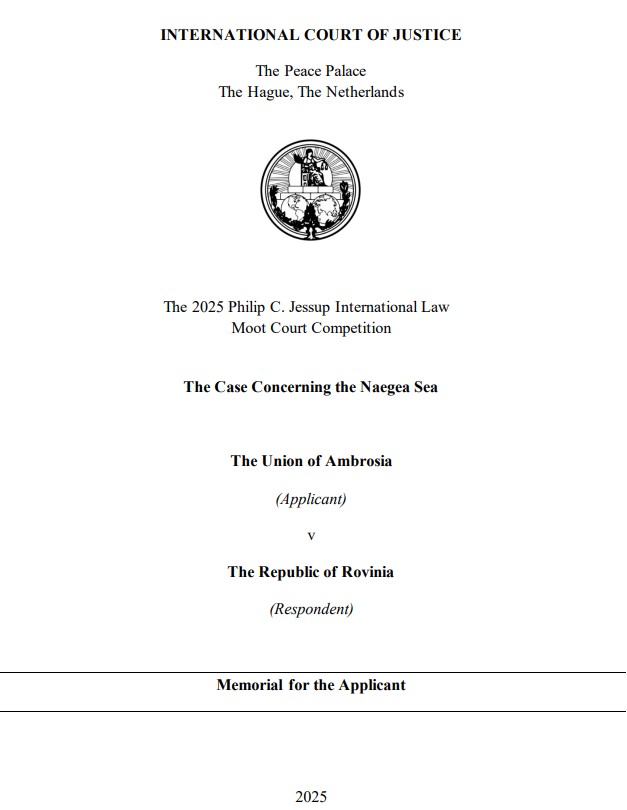
There were many moving parts to the large problem, and there were a variety of interesting issues to discuss; however, I was particularly suspicious of the law of the sea. It was not an area of law I had ever encountered, and, in all honesty, I thought it sounded technical and rather boring. After meeting with the team for the first time, we figured the best approach to the problem was to divide and conquer, as we were conscious that we had two 12,000-word Memorials (being a fancy term for skeleton arguments) to write by January. When divvying up the problem, I somehow found myself volunteering to tackle the law of the sea section.
One of the core issues in the problem was rising sea levels owing to climate change and the effect this would have on sea boundaries. In the problem, one state was losing large amounts of its coastline to rising sea levels whilst the other state risked losing access to a resource that was vital to its economy. Depending on how the court ruled, this would have had a significant effect on the economic stability of both states and would have significant implications on the future of climate change litigation, which is a thorny issue in international law.
One of the most exciting issues was that the United Nations Convention on the Law of the Sea – a convention that quickly became my scripture – remained silent as to what should happen to maritime boundaries following climate change-induced coastline erosion. This unprecedented topic was made all the more interesting by the ongoing proceedings in the United Nations concerning state obligations in respect of climate change. Consequently, this made for some very dynamic and creative arguments, especially in the oral rounds.
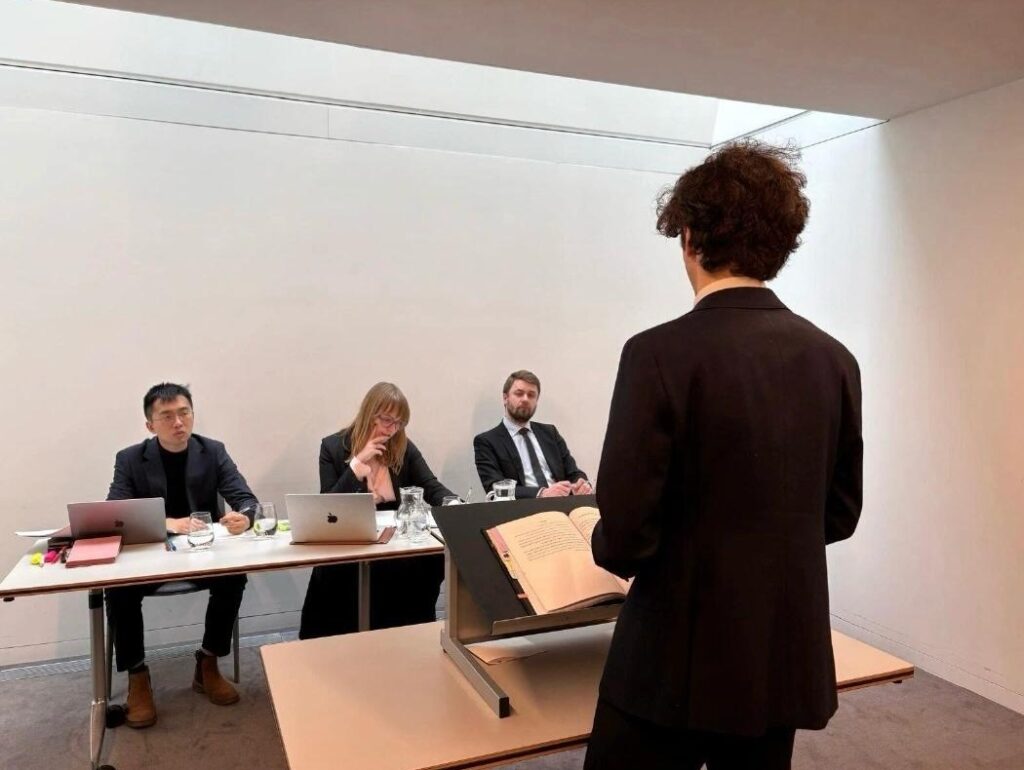
After submitting our Memorials, we then began to prepare for the oral rounds in February, which were held in Lincoln’s Inn. This was the first time I had visited Lincoln’s, and it was such a lovely venue that it made me slightly regret not becoming a member of this Inn (apologies Middle Temple). Our team had to participate in four oral rounds, which were nearly two hours each.
Each team had 45 minutes to give their submissions, and there was then an opportunity to provide a short rebuttal to your opponent’s submissions. It was hard to predict what the oral rounds would be like – which was part of the fun – but we were helped by lecturers and our coaches who kindly donated their time to help us prepare.
There is not really a mooting experience like Jessup. I had participated in a good few moots prior to Jessup, but none matched the level of intensity and vitality of Jessup. The judges asked a wide range of questions, which spanned from basic public international law questions to breathtaking hypotheticals. There was something really exciting about just how unpredictable the questions were, and it made me appreciate the instinctual nature of oral advocacy.
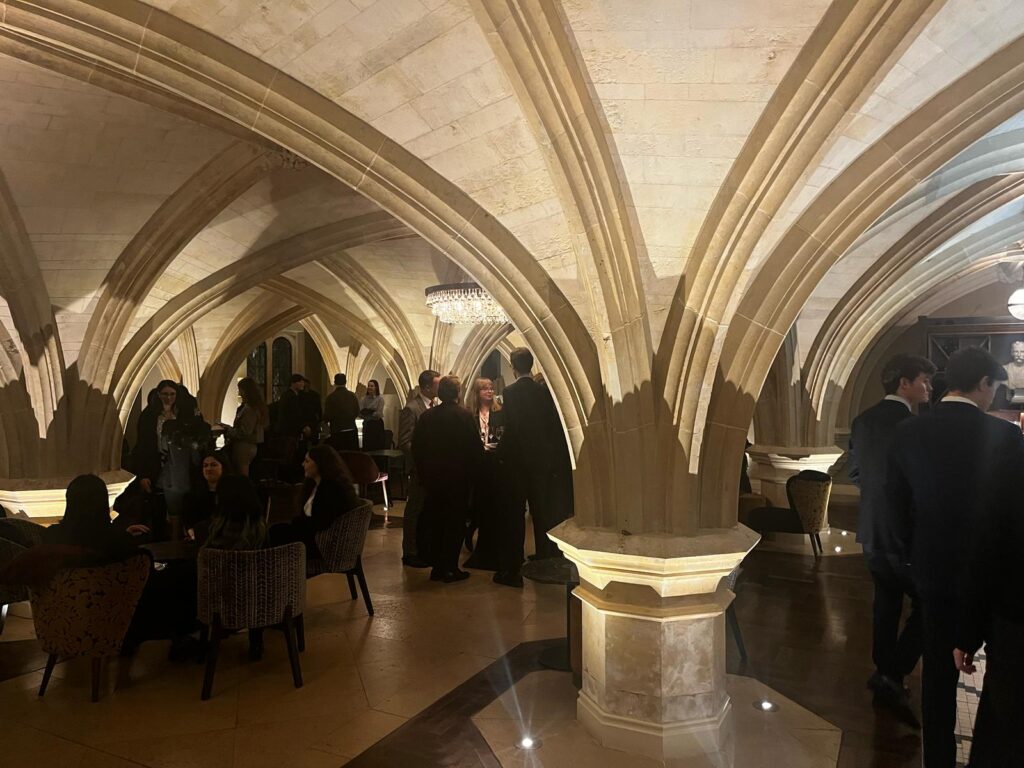
One of the many questions I was asked concerned my authority for the definition of a “developing country”. It was interesting to hear after the round that the judge that had asked this question worked at the UN with developing countries on the issue we had been discussing: I found it quite amusing that I had just tried to define developing states to someone who was an expert in them. There was something quite cool about hearing your judges say they were involved in some of the cases you had just been citing before them.
Sitting in on the other rounds was also rewarding, as I was able not only to see a range of arguments and styles, but this was also the first time that I had confirmation that the arguments I had been working on for months were also being used by the other teams. As the rounds progressed, and the judges became well acquainted with the problem and the arguments that were being raised, they knew how to go straight for the jugular, which made for some rather complex questions in our final round.
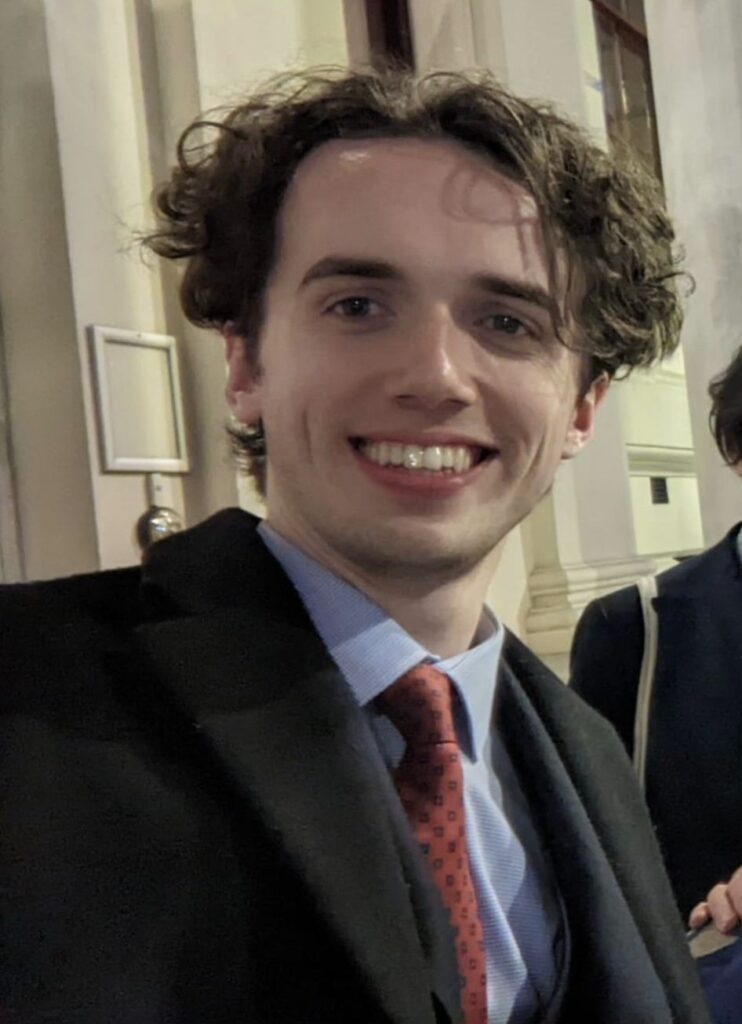
There was really no advocacy experience like it, and I felt my ability to advocate improve massively as a result. There were a few jokes thrown around by judges that we were now part of the Jessup family, and I have a feeling I will be participating again in the years to come. The team was admittedly quite glad that we did not have to fly to Washington DC for the international rounds (I hate flying) and that we could finally get back to focusing on the already jam-packed nine months that is the GDL, but this was an experience well worth the strain. Better yet, I discovered that I am actually really interested in law of the sea: who would have thought!
Oliver is currently studying the GDL at City Law School having recently graduated with a degree in music. After the GDL he intends to gain experience working as a paralegal or assistant before starting the BVS. He hopes to one day practice as a public law barrister.

